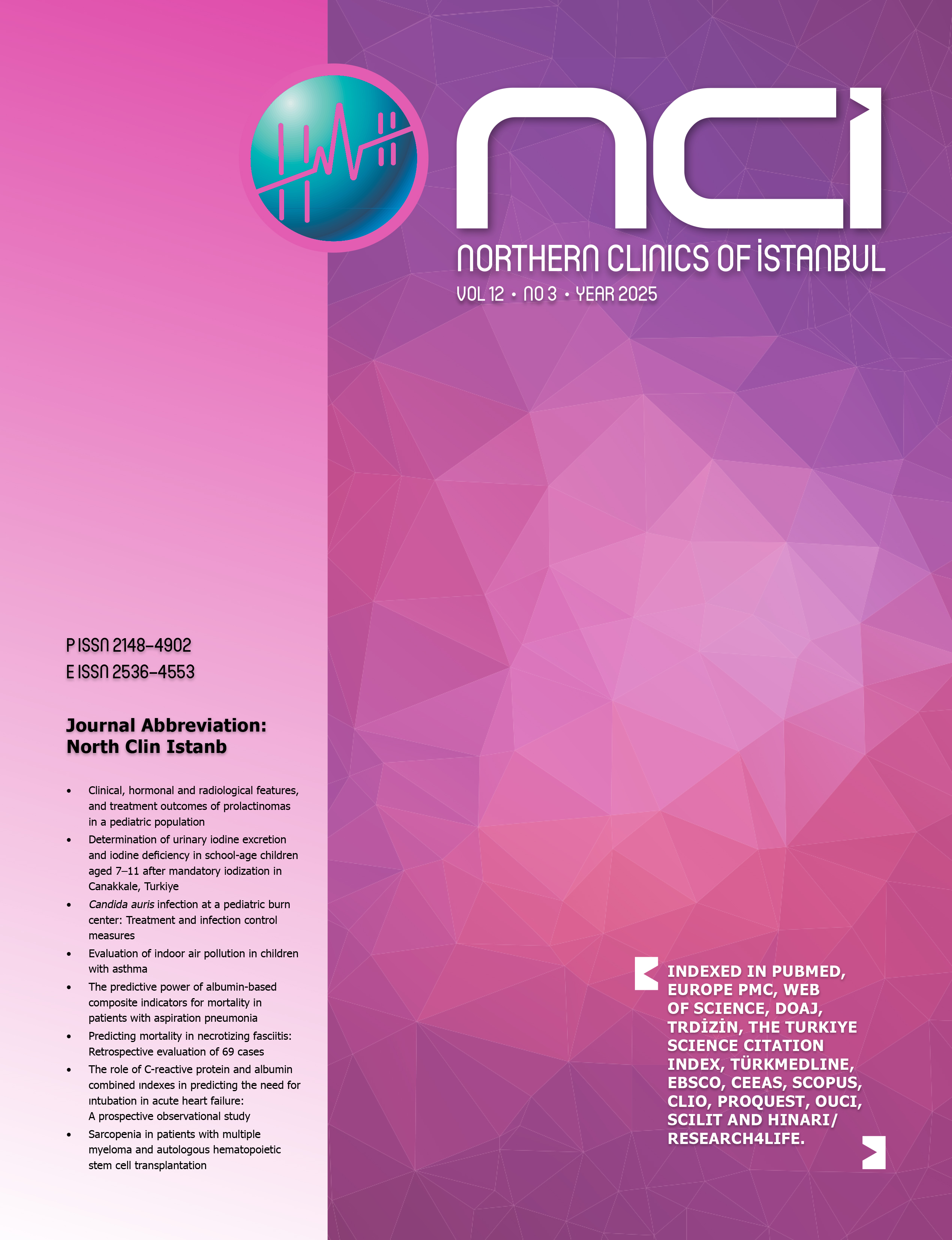Adherence to dermatologic treatment: A retrospective cross-sectional study on geriatric patients
Sila Kilic Sayar1, Gizem Pinar Sun21Department of Dermatology and Venereology, Bahcesehir University Faculty of Medicine, Goztepe Medical Park Hospital, Istanbul, Turkiye2Department of Dermatology and Venereology, University of Health Sciences, Basaksehir Cam and Sakura City Hospital, Istanbul, Turkiye
OBJECTIVE: With the prolongation of the average life expectancy worldwide, diseases including dermatological disorders of the elderly are gaining importance. The presence of comorbidities in this age group may affect the treatment strategies; compliance with follow-up and adherence to medication can be poor. The aim of this study is to evaluate the dermatological disorders of patients aged 65 and over and determine their adherence to dermatologic treatment.
METHODS: A retrospective and cross-sectional study was conducted on patients aged 65 and over applied to a single tertiary dermatology clinic between April 2021 and April 2022. Diagnoses were that clinical and diagnostic tests were performed when only necessary.
RESULTS: A total of 207 admissions to the dermatology clinic by 135 patients were evaluated. Eczema (23.05%) and infections (25.2%) were the most common dermatological diagnoses. The percentage of patients with precancerous and cancerous lesions was 11.9%. Among 123 patients who need at least a follow-up visit, only 37 patients (30.1%) applied for follow-up as advised, and medicines were taken regularly by 23 of these patients (62.2%). Compliance with follow-up was lower among men (OR 0.365, 95% CI 0.1600.834, and p=0.02) and patients who were treated only with local therapy agents (OR 0.345, 95% CI 0.1380.863, and p=0.20).
CONCLUSION: Eczema and infections were the most common dermatological diagnoses among geriatric patients in the present study. The majority of geriatric patients with skin conditions were not applying for follow-up visits. Women and patients treated with systemic therapy agents were more compliant. The prevalence of basal cell carcinoma was not low, and this emphasizes the importance of a careful dermatological examination regardless of primary complaint in this age group.
Dermatolojik tedaviye uyum: Geriatrik hastalar üzerine retrospektif kesitsel bir çalışma
Sila Kilic Sayar1, Gizem Pinar Sun21Bahçeşehir Üniversitesi Tıp Fakültesi, Göztepe Medical Park Hastanesi, Dermatoloji ve Zührevi Hastalıklar Kliniği, İstanbul2Sağlık Bilimleri Üniversitesi, Başakşehir Çam ve Sakura Şehir Hastanesi, Dermatoloji ve Zührevi Hastalıklar Kliniği, İstanbul
Amaç: Tüm dünyada ortalama yaşam süresinin uzamasıyla birlikte yaşlı hastalarda görülen dermatolojik hastalıklar dahil olmak üzere tüm hastalıklar önem kazanmaktadır. Bu yaş grubunda dermatolojik hastalıklara sıklıkla eşlik eden sistemik hastalıkların varlığı tedavi seçimlerini etkileyebilir; ilaç kullanımına ve takibe uyum zayıf olabilir. Bu çalışmada amaç 65 yaş ve üzeri hastaların dermatolojik hastalıklarını değerlendirmek, klinik kontrollere ve ilaç tedavisine uyumlarını belirlemek.
Yöntem: Nisan 2021 ile Nisan 2022 tarihleri arasında tek bir üçüncü basamak dermatoloji kliniğine başvuran 65 yaş ve üzeri hastalarda retrospektif kesitsel bir çalışma yapılmıştır. Tanılar kliniktir ve tanısal testler sadece gerektiğinde yapılmıştır.
Bulgular: Dermatoloji polikliniğine başvuran135 hastanın toplam 207 başvurusu değerlendirildi. Ekzema (%23) ve deri infeksiyonları (%25,2) en sık dermatolojik tanılardı. Prekanseröz ve kanseröz deri lezyonları olan hastaların tüm gruba oranı %11,9 olarak bulundu. Takip ihtiyacı olan 123 hastadan sadece 37'si (%30,1) tavsiye edildiği şekilde kontrole gelmişti ve bu hastaların 23'ü (%62,2) düzenli olarak ilaçlarını kullanmıştı. Takibe uyum erkekler (OR 0,365, %95 CI 0,160-0,834, p=0,02) ve sadece topikal tedavi kullanılan hastalar arasında daha düşük bulundu (OR 0,345, %95 CI 0,138-0,863, p=0,20).
Sonuç: Ekzema ve deri infeksiyonları bu çalışmanın geriatrik hastalarında en sık görülen dermatolojik tanılardır. Deri şikayetleri olan geriatrik hastaların çoğu planlı kontrollerini takip etmemektedir. Kadınlar ve sistemik tedavi ajanlarıyla tedavi edilen hastalar daha uyumlu bulunmuştur. Bazal hücreli karsinom prevalansının düşük olmaması, bu yaş grubunda birincil şikayete bakılmaksızın dikkatli bir dermatolojik muayenenin önemini vurgulamaktadır. (NCI-2022-6-23)
Manuscript Language: English





















